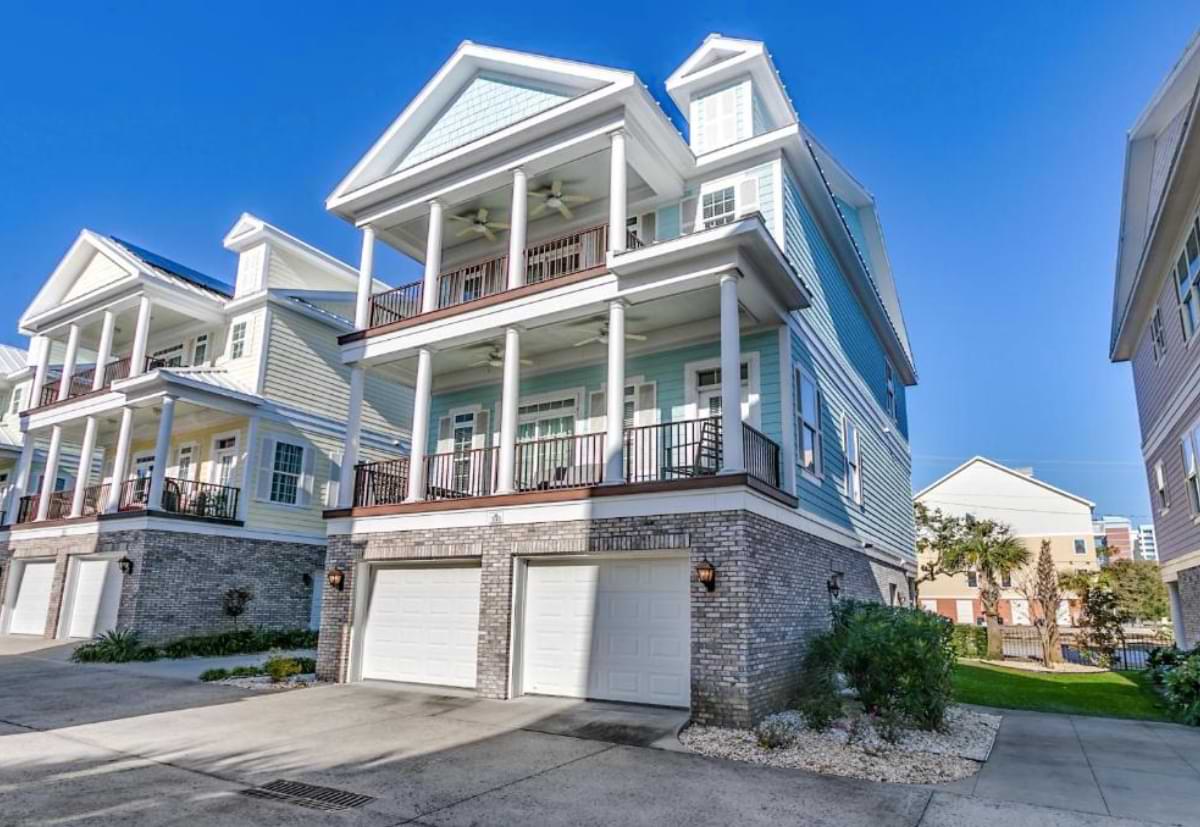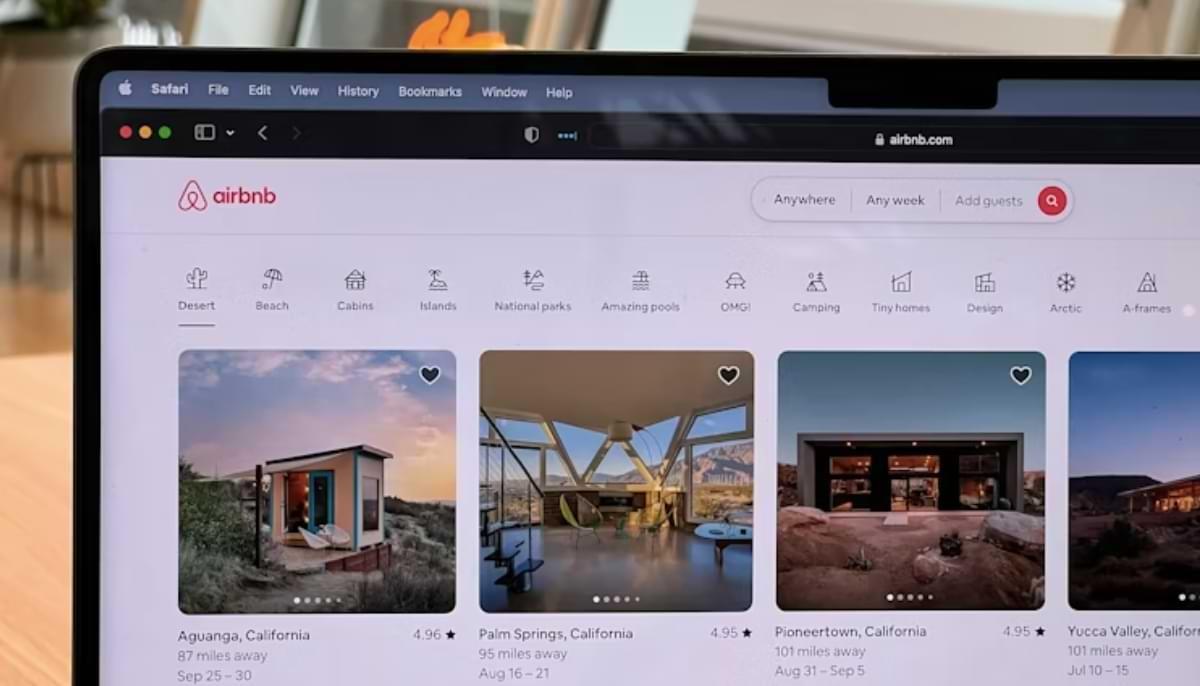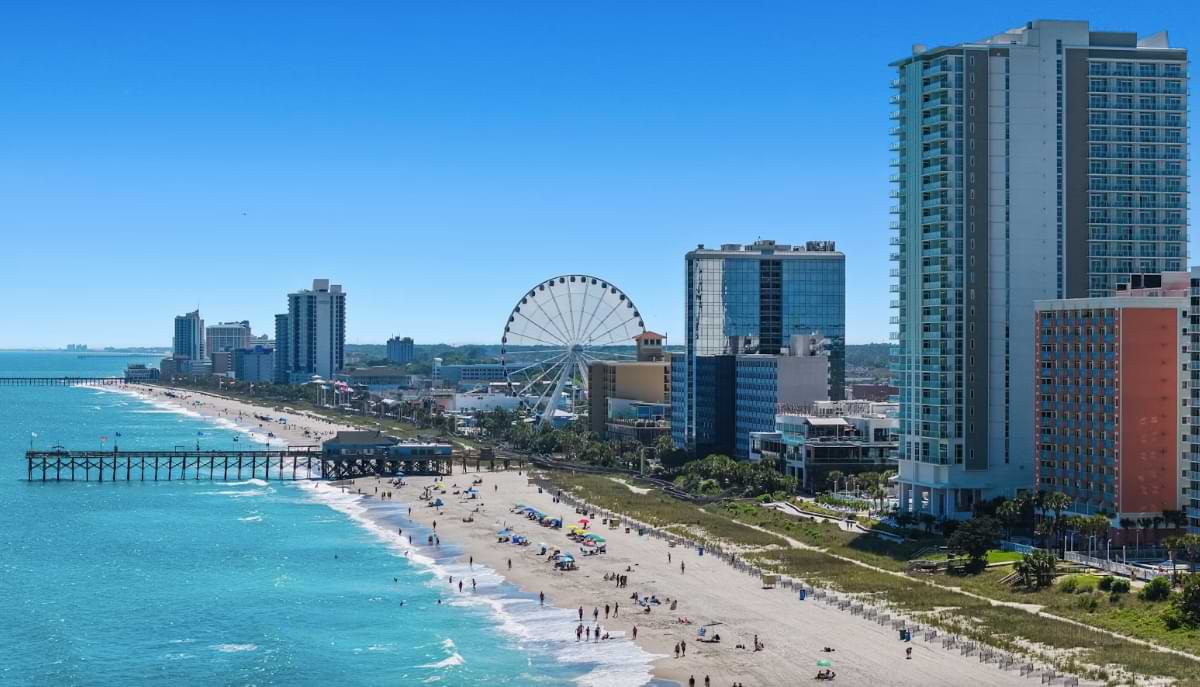Dynamic pricing is the key to standing out in Myrtle Beach's busy vacation rental scene. With the right tools and a clear pricing strategy, you can boost bookings, increase revenue, and stay competitive.
No matter if your rental is in Colorado, Tennessee, Florida, or right here in South Carolina, mastering dynamic pricing is key to your success as a vacation rental owner. As experienced vacation rental managers, we see pricing as an ongoing process.
That's why we have a dedicated team of revenue optimization experts who analyze the market daily, fine-tuning rates to maximize revenue. This flexibility is the foundation of our approach. We make dynamic pricing work by relying on six basic principles:
- Automate rate adjustments and stay competitive without constant manual updates.
- Understand market trends and fine-tune offerings to stay ahead.
- Define minimums, maximums, and a break-even point to guide pricing.
- Apply early booking boosts, gap-night discounts, and flexible stay rules to increase occupancy.
- Expand reach and attract more guests by using multiple booking platforms.
- Track performance and adjust rates based on real-time demand and booking trends.
At Luxury Beach Rentals, we've spent years managing properties here in Myrtle Beach, so we know what it takes to make them thrive, and we're happy to share what we've learned.
Ready to boost your rental's profitability? In this blog post, I'll share six key insights for mastering revenue management and dynamic pricing in Myrtle Beach.
Let's jump into the details!

What Exactly Is Dynamic Pricing?
Dynamic pricing means regularly adjusting your rental rates in response to real-time market trends. The goal is to offer the best price to attract the right guest at the right moment, helping you stay competitive, fill your calendar, and grow your revenue.
Now, let's break down how to master this strategy in six simple steps.
1. Use Dynamic Pricing Tools for The Heavy Lifting
In a busy market like Myrtle Beach, setting one rate for every night leaves money on the table. Dynamic pricing tools take out the guesswork and keep your rental competitive year-round.
These platforms scan local trends, adjust for holidays, big events, and demand surges—then recommend the best price daily. You don't need to be a data wizard; the software does the hard part.
Here's What They Help You Do
- Raise rates when demand spikes, drop them to fill quiet nights.
- Fill booking gaps between stays.
- Adjust minimum stays by season.
- Respond quickly to cancellations.
- Capitalize on big events like bike week, concerts, and sports tournaments.
Top Tools to Consider
- Beyond: Super intuitive, great for hands-off hosts. Just check in now and then.
- PriceLabs: Highly customizable and perfect for hands-on managers who want control.
- Wheelhouse: A strong middle ground with great flexibility and integrations.
Note: Expect to pay around 10% of your revenue for these tools. I know it sounds like a lot, but the vast majority of owners make that back, and then some, by avoiding underpriced nights or empty calendars.
Key Takeaways
- Dynamic pricing adapts to Myrtle Beach's fast-changing market and maximizes your revenue.
- Tools like Beyond, PriceLabs, and Wheelhouse adjust rates automatically so you don't have to.
- The return on investment from higher occupancy and smarter pricing usually outweighs the cost.
2. Keep an Eye on the Competition to Stay Ahead
In a place like Myrtle Beach, where new rentals pop up all the time, knowing how your property stacks up is essential. The more you understand your local competition, the smarter your strategy becomes.
How to Create a Competitive Set
Pick 5–10 nearby rentals similar in size, location, and amenities. Track how they're priced, how booked they are, and what guests are saying. Use that info to stay one step ahead.
Dynamic pricing platforms like PriceLabs and Wheelhouse automatically scan your competition and adjust your pricing accordingly, but you still need to understand what influences the rates.
Here's What to Watch
- Amenities: Do your rivals have better pools, patios, or game rooms?
- Size & Capacity: Is your property under- or oversized for the area?
- Location: Are beachfront listings outperforming yours inland?
- Performance: Compare occupancy, nightly rates, and guest reviews.
- Guest Feedback: Read reviews to understand what people love or complain about in similar homes.
This kind of analysis helps you fine-tune your listing, upgrade what matters most, and stay competitive without guessing.
Key Takeaways
- Knowing what similar Myrtle Beach rentals are doing helps you make smarter decisions.
- Use pricing tools and guest reviews to monitor trends and adjust your strategy.
- Focus on the factors that truly influence bookings: amenities, location, and guest experience.
3. Establish a Clear Pricing Framework
Don't guess your nightly rates. Having clear pricing guidelines helps you avoid losses and plan for long-term profitability. Figure out your base price by calculating all your costs. This is your break-even point; anything below this and you're losing money.
Define your lowest and highest rates. Drop prices for off-season or last-minute gaps. Raise them during peak seasons, holidays, or Myrtle Beach events like Bike Week or summer concerts.
Pro tip: Be Strategic, Not the Cheapest. Undercutting the competition might get you bookings, but it won't help if you're not making a profit. Focus on value instead of just lowering your price.
Once your metrics are set, dynamic pricing tools will automatically adjust rates based on demand, availability, and local trends, keeping you competitive on every platform.
Key Takeaways
- Know your break-even point and never price below it.
- Use seasonal and event-based pricing limits to optimize revenue year-round.
- Avoid price wars. Instead, focus on value and use smart tools to stay competitive automatically.

4. Fine-Tune Your Pricing to Maximize Bookings
Once you've locked in your baseline, minimum, and maximum rates, the next step is smart adjustments. These tweaks help boost occupancy without slashing your profits. Here are some ideas:
- Encourage Early Bookings: Raise rates slightly for guests booking far in advance—this creates urgency and rewards commitment.
- Fill Last-Minute Gaps: Offer small discounts on unbooked nights close to today's date or in between existing bookings.
- Fix Orphan Days: Lower your price for those tricky one- or two-night gaps between reservations to avoid empty calendar blocks.
- Refine Length-of-Stay Rules: Look at market data and adjust your minimum stay requirements to match demand, for example, two-night stays midweek, four nights during summer weekends.
- Use Weekday Discounts: Weekday demand in Myrtle Beach can dip, so small markdowns may keep your calendar filled.
- Promote Longer Stays: Offer a deal on stays over 5–7 nights. It boosts revenue and reduces turnover-related costs like cleanings and resets.
Pro tip: After applying these tweaks, track how they affect your occupancy and revenue, and don't be afraid to make adjustments along the way.
Key Takeaways
- Strategic pricing rules can help you fill gaps, reduce vacancies, and boost profits.
- Avoid overcomplicating your setup; too many restrictions can limit visibility in search results.
- Keep your pricing flexible and data-driven to stay competitive in Myrtle Beach's fast-moving rental market.
5. List on Multiple Platforms to Maximize Exposure
In today's digital-first rental landscape, your online presence matters. The more places your Myrtle Beach property appears, the more eyes and potential bookings you'll attract.
Here are the main platforms:
- Airbnb: A go-to for many travelers thanks to its ease of use, built-in insurance, and smooth payment system.
- Vrbo: A strong contender, especially for family vacationers. Listing here also gives exposure on Expedia and Hotels.com.
- Booking.com: More hotel-focused, but still useful for reaching international travelers and boosting your property's visibility.
- Expedia: Expanding its vacation rental presence, Expedia is user-friendly and another smart place to list for a broader reach.
Pro tip: Wherever you list, your online profile is your property's storefront. Keep it honest, well-written, and up to date to avoid surprises and disappointed guests.
Key Takeaways
- Listing on multiple OTAs increases your visibility and booking potential.
- Each platform caters to different traveler types, and using more than one helps you reach broader audiences.
- Clear, accurate listings help manage guest expectations and improve satisfaction.
6. Keep an Eye on Performance and Adjust Regularly
Staying competitive in Myrtle Beach means more than just setting your prices; it's about constantly evaluating how your rental is performing and making smart adjustments based on what the market is doing.
Here are some ideas:
- If your 60–90 day vacancy rate is higher than expected, try reducing your base rate by 5–10%.
- If you're consistently booked far in advance, that's a sign you may be underpriced> Raise your rates by 5–10%.
- If your long-term outlook looks solid but the next 30 days are underbooked, consider adding a short-term discount to fill those gaps.
Key Takeaways
- Track your occupancy data regularly to catch underperformance early.
- Small rate tweaks (5–10%) can make a big difference in revenue.
- Adjust short-term pricing manually when long-term trends are healthy but near-term bookings are slow.

Vacation Rental Management, the Easy Way
Managing a Myrtle Beach vacation rental can feel like a lot, but it doesn't have to be. With years of hands-on experience, our team at Luxury Beach Rentals has built smart systems that help keep your property booked, well-maintained, and bring in steady income.
Curious what your rental could earn? Get a free estimate on our website and discover how working with a local expert can simplify everything.

